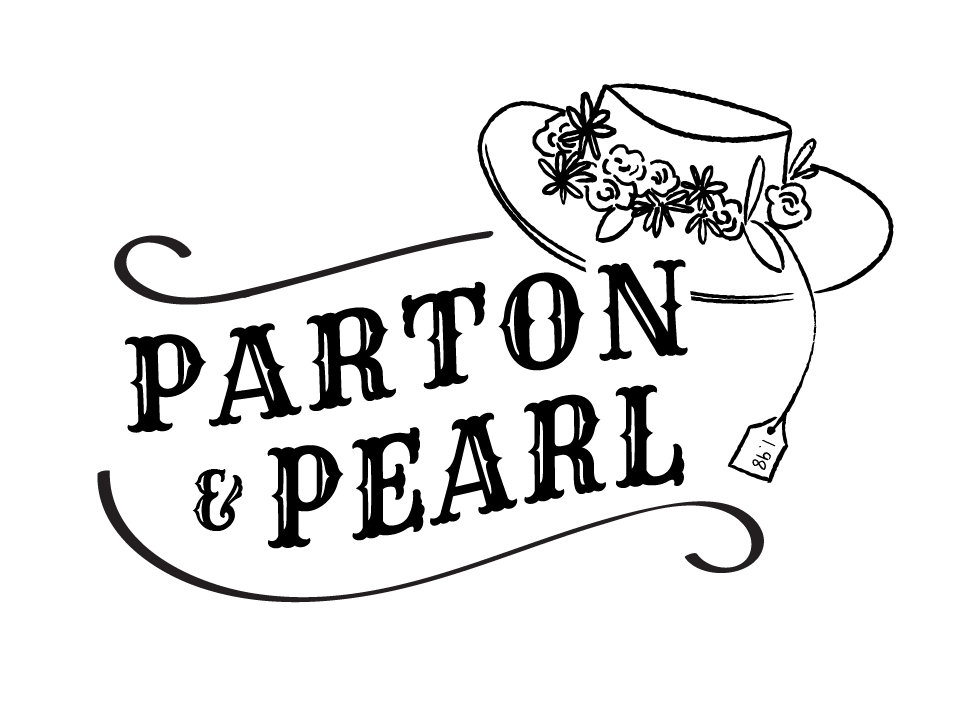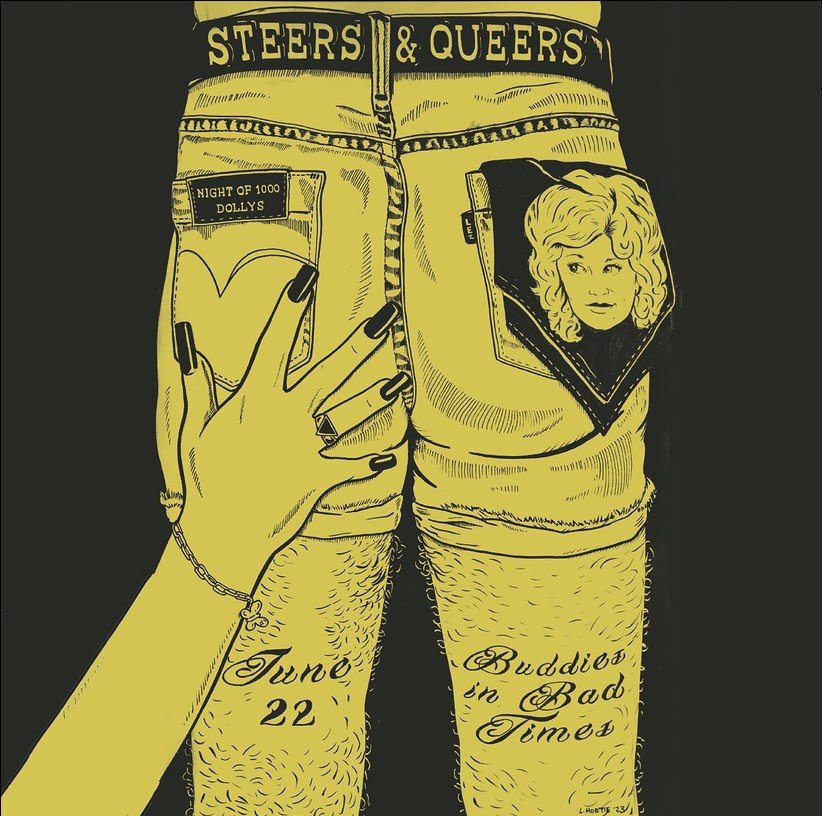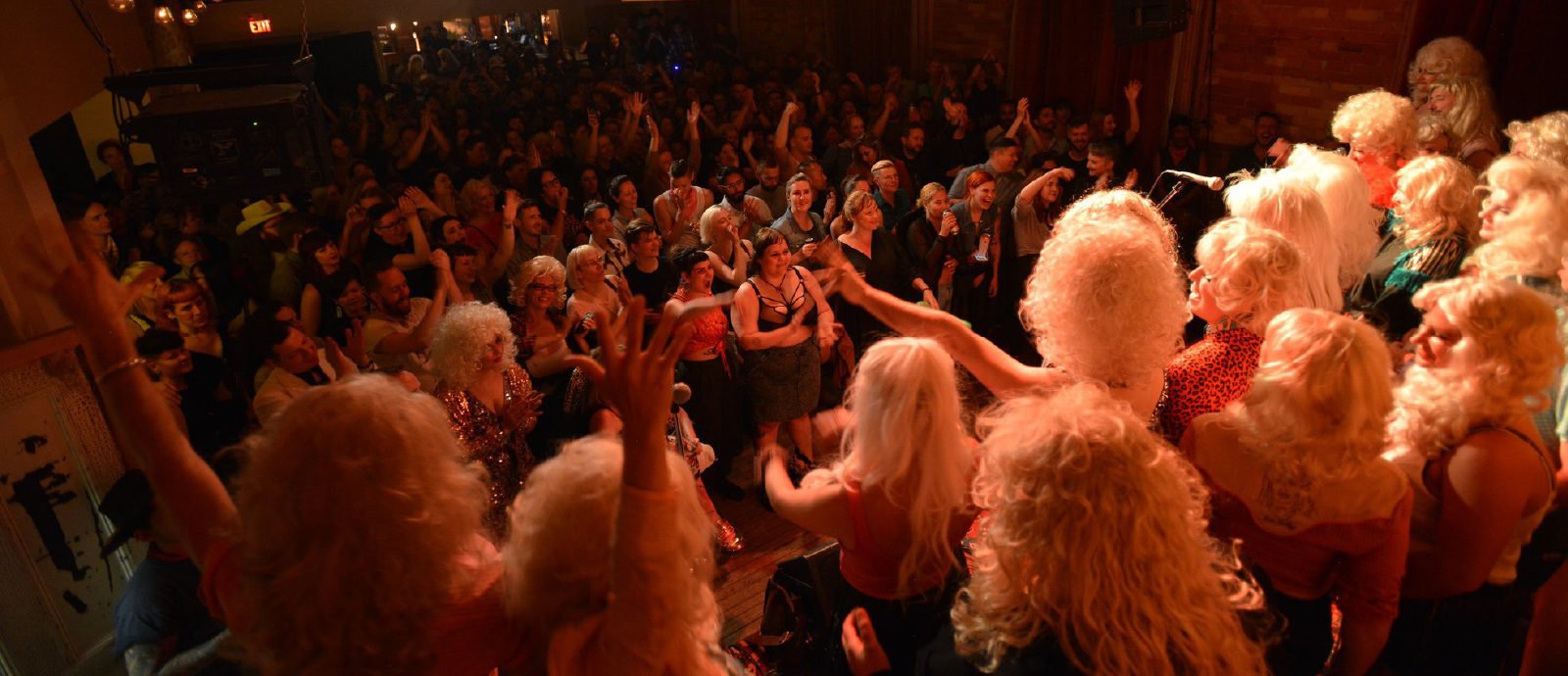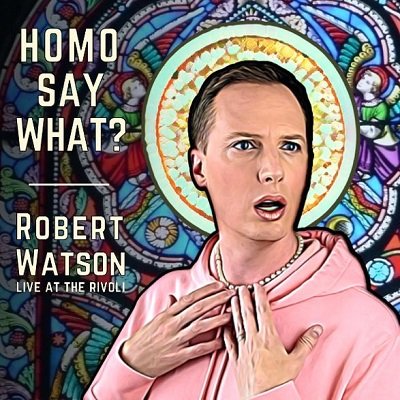Steers & Queers Getting All Dolly-ed Up During Toronto Pride
Roughly two decades ago Lauren Hortie and a friend Josh Goodbaum sauntered into Toronto's Dakota Tavern, an intimate old-school country bar that's been a cornerstone of the city's roots and country scene. Little did Hortie know that venue and an idea would result in a movement that is much more than a nine-to-five vocation.
"I went with a friend to check out the space and it was so incredible," Hortie says. "It was almost like a movie set. So jokingly I said, 'We could do a queer night and the name would be Steers & Queers.' They said, 'Well you have the name you should probably have the party!' Two days later he said, 'I found a Dolly Parton drag queen. Let's get going.' So we got it hopping."
Steers & Queers has been an extremely popular event during Toronto's Pride week and beyond, with Hortie ensuring everything runs smoothly this week when Steers & Queers' Night of 1000 Dollys -- a Dolly Parton-inspired church service -- takes place June 22 at the sold-out Buddies In Bad Times. Hortie says Steers & Queers "has been around for 17 years" and is "almost old enough to drink."
"When I went to Toronto I tried to find a niche," she says. "What could be more of a niche than gay country and western? From day one it turned out to be super popular. I think over the 17 years the venues have definitely gotten bigger. I think the reason for the longevity of the show is it's not a month, it's maybe something that happens three or four times a year and now it's just the big one at Pride in Toronto."
Belle Jumelles, a Toronto burlesque dancer performing at Night of 1000 Dollys, remembers her first Steers & Queers event vividly.
"When I got there I realized not only are all these people into country music but they are also queers, it is the coolest thing I could ever ask for," Jumelles says. "Everybody got so into dressing up in a way that felt very country and on brand. I thought to myself, 'This is a dream. I am in a dreamworld.'"
Steers & Queers events have happened in Hamilton, Montreal, Ottawa and the Hayloft Dancehall in Prince Edward County, Ontario. Hortie attributes the success to the night's immersive experience with DJs, a live band, burlesque, drag and a "non-monogamous slow dance" with dance partners routinely changing. All of this gives it a variety show quality.
"It's very rare that somebody isn't at least rocking a bandanna or a plaid shirt," Horten says. "People are invested in the party and they want to join in. Also when you're dressing up as a cowboy and getting into country music it's really hard to take yourself too seriously, those pretensions are stripped away.”
As for Night of 1000 Dollys, Jumelles says it's her favourite event of the year. "Night of 1000 Dollys is like going to Dolly Parton church," she says. "It is bigger than life and full of incredible energy whether you decide to come in your best cowgirl/cowboy/cowthem gear or just dress normally. It Is like the Grand Ole Opry queer country church.
"I think one of the coolest things of the night is the Dolly choir. Some are full-blown artists and vocally trained but others are folks who don't get to do stage work very often. They're not necessarily professional artists and they come together and rehearse and put together an amazing list of songs. And they all dress like Dolly Parton! It's spectacular to see."
Both Hortie and Jumelles laud Parton for her good deeds over the years, something both quickly noted.
"If I had known this Dolly thing was going to go for so long I might have hesitated to hook onto one person but luckily she's been good," Hortie says. "She helped fund the COVID vaccine."
"When I saw her in concert it wasn't really the songs, I mean I loved every piece of the music, but it's the storytelling she does in between and who she is as a human," Jumelles says. "Her level of care for social justice and taking care of marginalized people. I'm obsessed with her because of that."
While inclusivity is apparent for any Steers & Queers event, Hortie says the rise in country music's inclusivity is something that needs to improve.
"I think there's a lot of really interesting artists working in country today and there's a lot more conversation," Hortie says, citing Orville Peck, Kacey Musgraves, and Jamie Wyatt among others. "I find country radio really disappointing and still super mono-cultural in terms of commercial country. Just how rigid they are in terms of women performers, not even getting into LGBTQ or trans artists, that's just brutal.
"But there is good country music out there you have to look for it. The thing I really like about country music is that everybody says they like country music for the stories but I like the specificity. The more specific the details, the more universal the experience. So that's where I see modern LGBTQ artists and modern songwriters, artists really crushing it and telling these stories that haven't really been told."
Although not looking ahead of this event, Hortie hopes to take Steers & Queers down to Austin, Texas next year but nothing is concrete. The response has been loud and clear though for the event.
"It's just my hobby," she says. "This is supposed to be the thing I do that's light and fun but honestly I cannot keep up with the demand. People are like, 'When are you coming to Chicago?' Maybe never I don't know.
"I don't know if country music is having a moment right now and that's why it's so popular or the show has become so established and there's been really good word of mouth. But so far so good. It's translated. Everybody is doing this and have full-time gigs but it's a labor of love."
Steers & Queers on June 22, 2023 is sold out. Follow them on Instagram for future events.




Travelin’ On has enough thematic range to observe both transcendent love and the grind of workaday life.